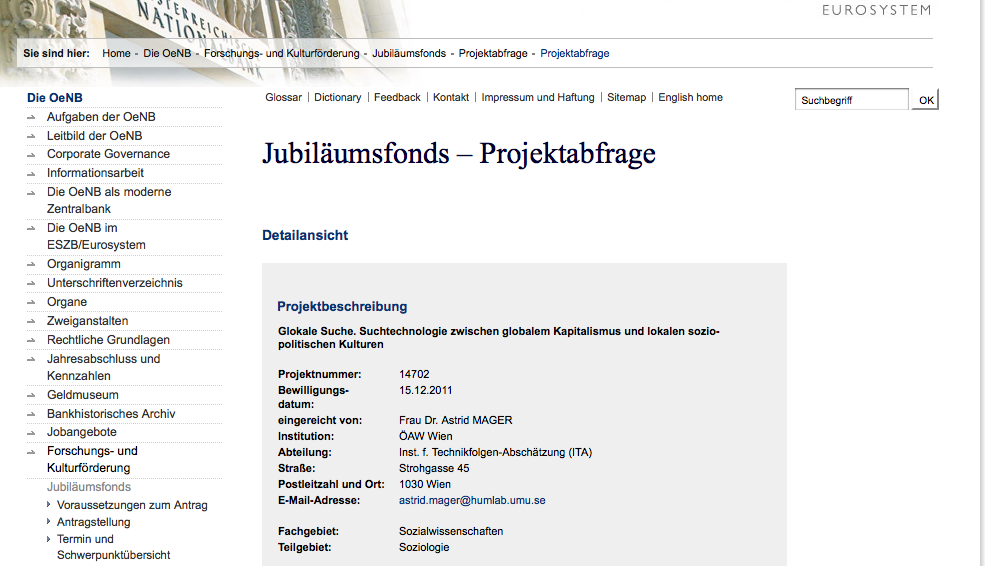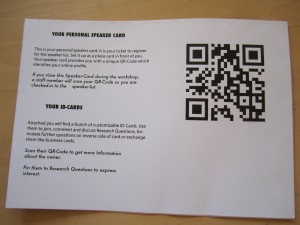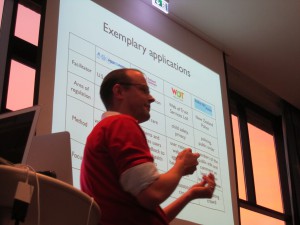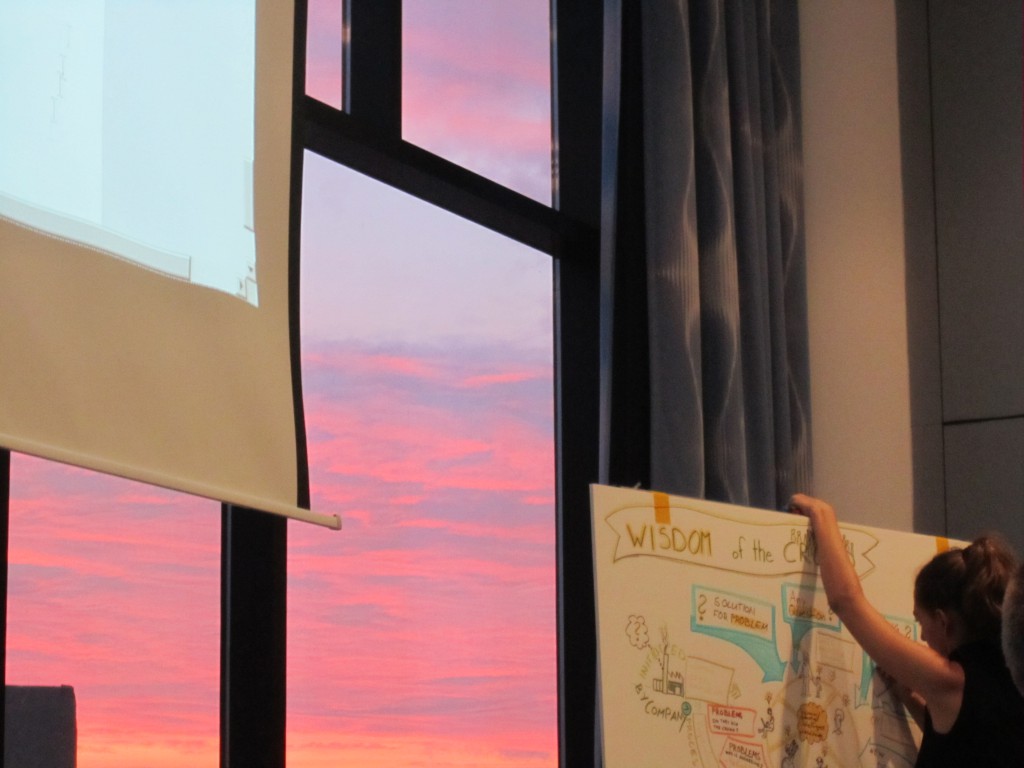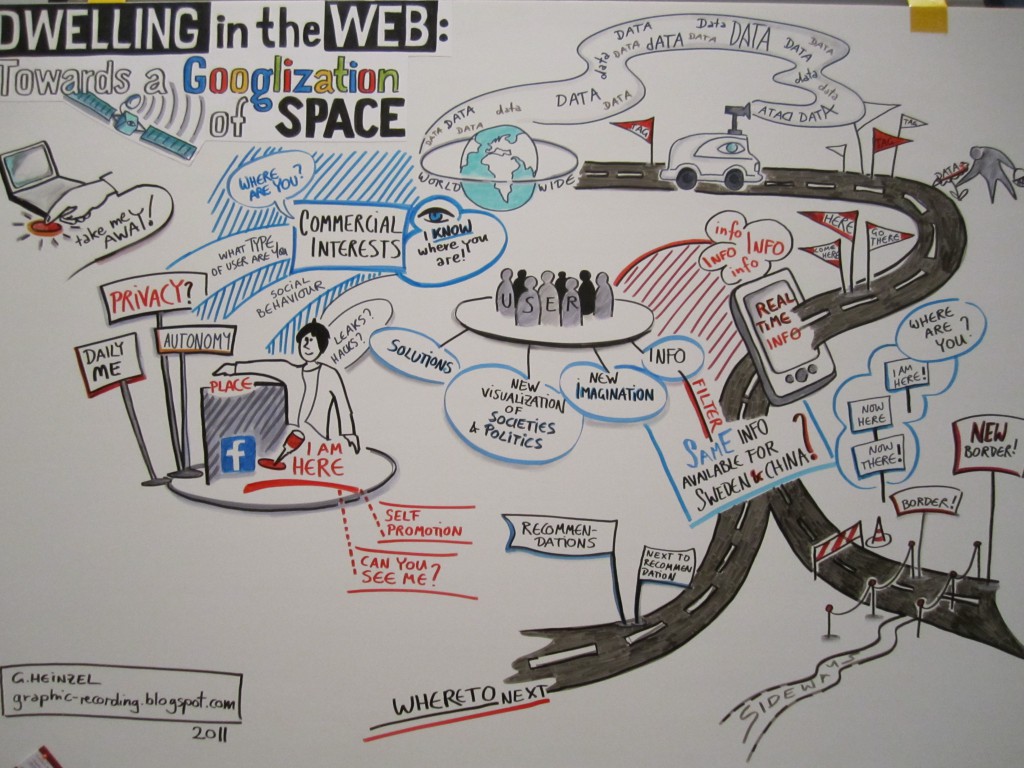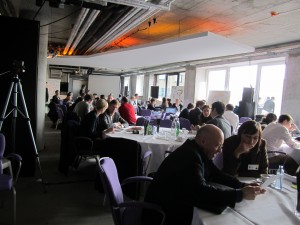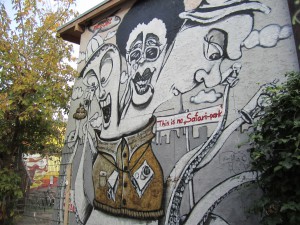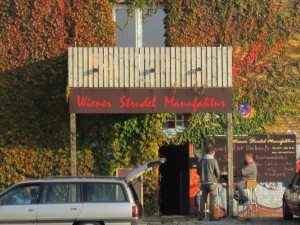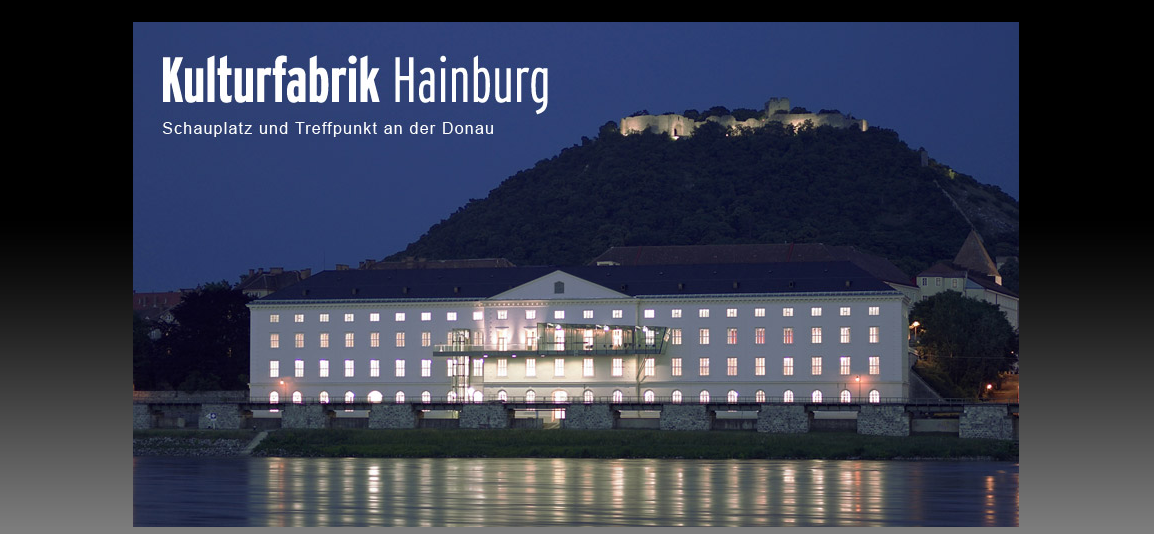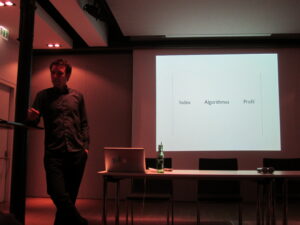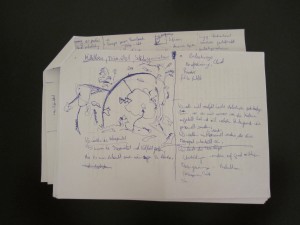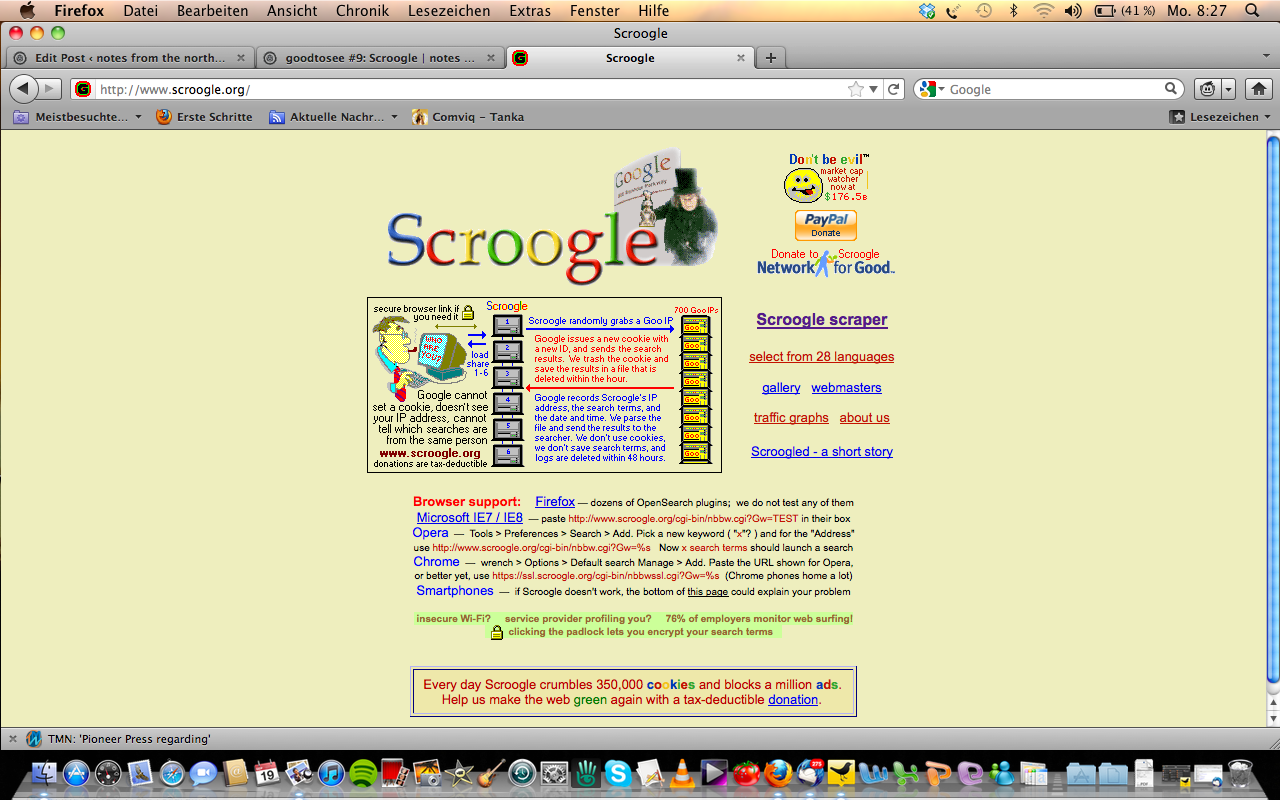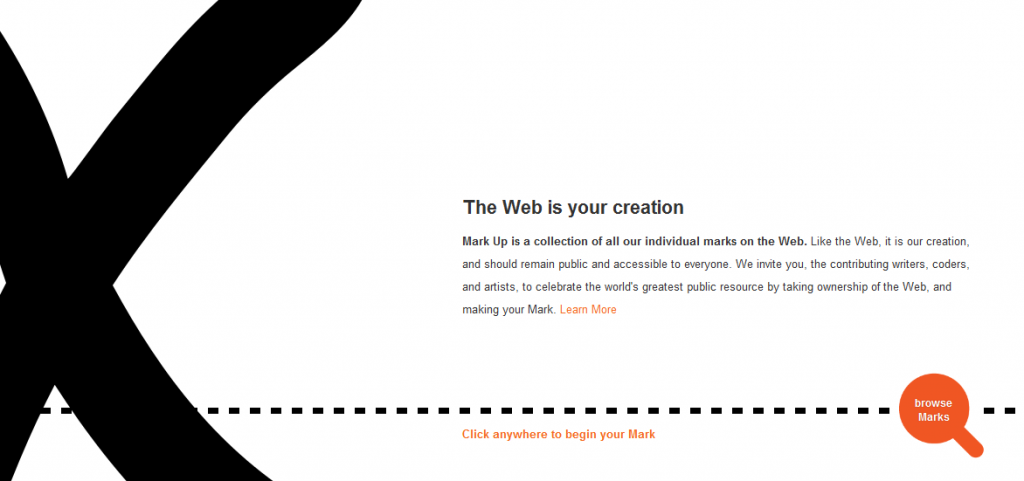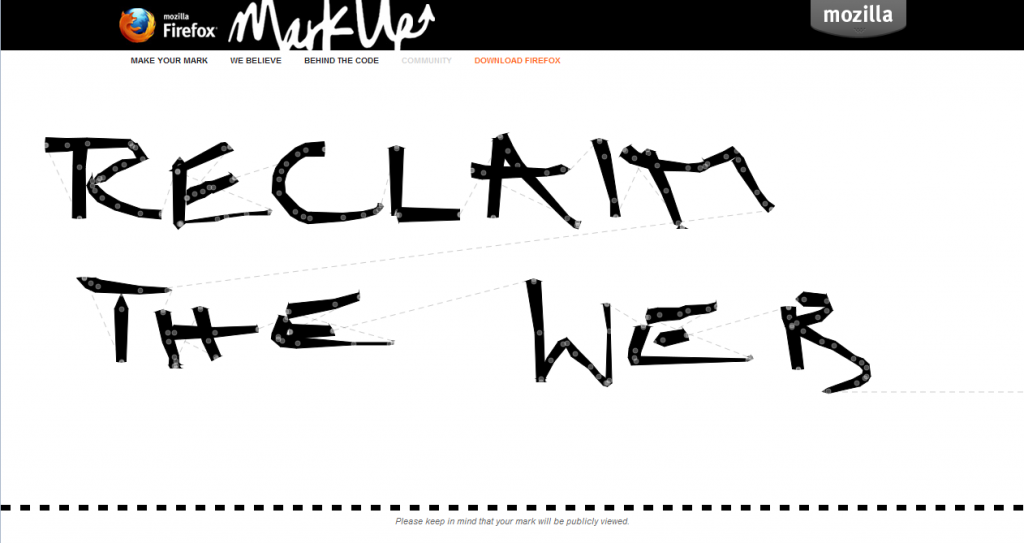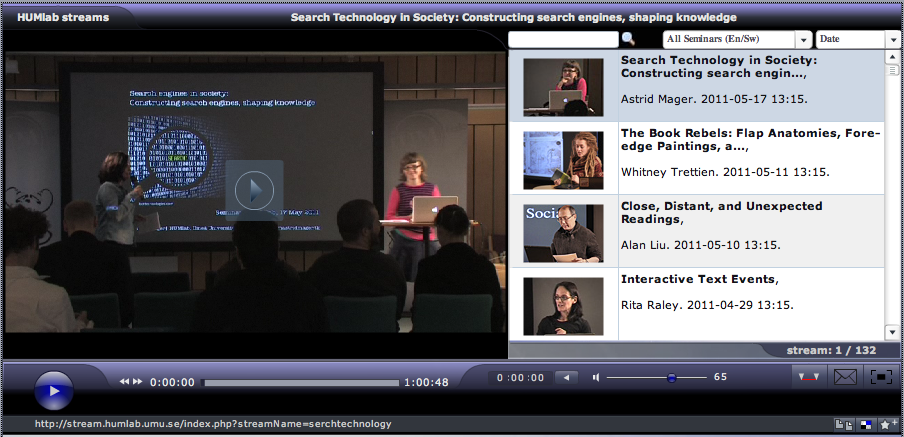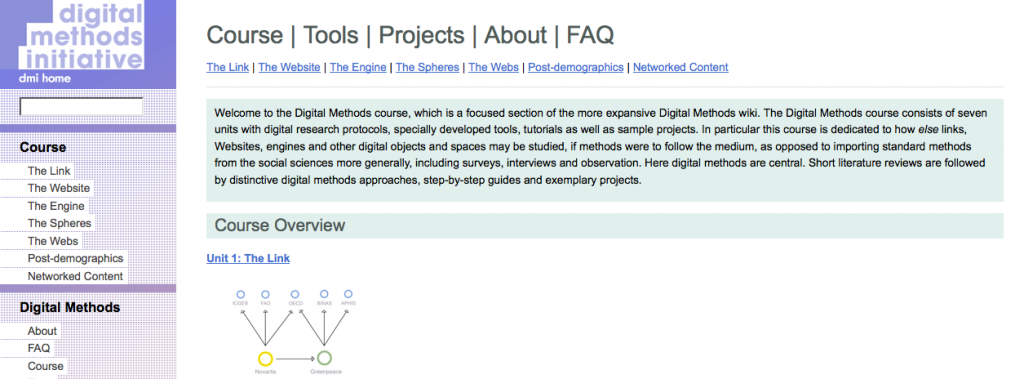Just before xmas I got the great great news that my 2-year research project “Glocal Search. Search technology at the intersection of global capitalism and local socio-political cultures” got funded by the Österreichische Nationalbank (OeNB). YAY. I’m really looking forward to 2012 now, where I’ll be in Vienna again!!!!! More information to follow.. stay tuned!
Tag Archives: search engine
biofuels in public spheres
Tomorrow I’ll be giving a seminar talk together with Jenny Eklöf from Umeå Studies in Science, Technology and Environment (USSTE). The title is “BIOFUELS IN PUBLIC SPHERES: How old and new media shape the biofuel controversy under the influence of technoscientific marketing”. All Umeå people are very welcome!!!
November 8, B 203, 13:00-14.30; Abstract:
While biofuels have been celebrated as an eco-friendly alternative to petrol with the potential to slow down climate change in the past, they have come under scrutiny due to their environmental and social impacts more recently. This seminar talk discusses our ongoing research project on the biofuel controversy in public spheres. The main research question to be addressed is how the controversy plays out in the Swedish press and in (Swedish) search engine results. Using “classical” (content analysis) and “digital” methods (search engine queries, link network analysis, issue clouds) we aim to show who the dominant actors are in both spheres, what visibility strategies they employ, and how actors from different sectors (industry, policy, academia) merge. In this analysis we specifically focus on blurring boundaries between different types of information (scientific, journalistic, activist, commercial etc.) and the way strategies of “technoscientific marketing” influence the staging of the controversy in the media and search engine results. This case study enables us to draw conclusions on how actors’ visibility strategies and different media (and their underlying mechanisms and business models) work in tandem to create blurred knowledge boundaries/ processes of information commercialization.
image credit © http://thecostaricanews.com/
Internet & Society/ Berlin
The second event I attended, just last week, was the Inauguration Symposium of the “Alexander von Humboldt Institute for Internet and Society” – also referred to as the Google Institute or Google-financed Institute (see its mission statement here). Even though I was a little skeptical at first, given the fact that Google sponsored both the Institute and the event, I greatly enjoyed the symposium! The first thing I realized when checking in was that a lot of technology would be involved in the conference.
The most stunning piece of technology was table cards with our names on them, but also QR codes identifying our profiles (we all had set up before going to Berlin). Whenever someone from the audience wanted to contribute something the QR code was scanned and the profile of the person was displayed on a screen (guess Patrik Svensson, director of HUMlab, would have loved this!). Right next to this screen was an even bigger screen showing the slides and an extended flip chart with a piece of paper on it – this was used to keep track of each session with a visualization, a picture summarizing the topics dealt with in the session (created by highly skilled illustrators!!). Moreover, there was a Google doc that collected notes and thoughts on the presentations, referees, and discussions. Given all this available documentation/ information a blog post on the issues treated at the conference seems to be almost obsolete.
That is why I’d like to share some unsystematic thoughts rather than a systematic summary of the conference (also because I missed parts of it). Altogether I think the four directors – Dr. Jeanette Hofmann, Prof. Ingolf Pernice, Prof. Thomas Schildhauer and Dr. Wolfgang Schulz -, together with the organizers, managed to put together a dense program with great speakers (especially on this short notice). I liked the workshop-oriented approach, even if it partly turned out to be more of an academic conference, than an interdisciplinary workshop. The combination of presentations and respondents worked out well and the chairs did a great job in general. My personal highlights were the sessions “Wisdom and Power of the Crowds“, especially Malte Ziewitz’s contribution on crowd wisdom and regulation, and “Dwelling in the Web: Towards a Googlization of Space” with contributions from Florian Fischer, Lonneke van der Velden, Robert Vogler, Tristan Thielmann; commented by Richard Rogers and others.
In the latter session the role of Max Senges, working in Google’s policy team and mediating between the new Institute and Google, as it seemed to me, attracted my attention. Whenever criticism of Google was raised (e.g. its policy of border drawing in regions such as Tibet) Max Senges started to defend Google, which I found interesting and made me wonder what the overall agenda may be that Google followed with funding the Institute (an aspect that is still not entirely clear to me, but will only get clearer in the upcoming years, I guess). In this context an interesting question was raised by Senges at the very end of the symposium: How could the Institute and its research be evaluated beyond classical academic impact factors? (This question is not easy to answer, of course, but Cornelius Puschmann put up some interesting thoughts for discussion in his recent blog post)
The format of the last day was a little challenging. The idea was to have round table discussions in small groups debating/ reflecting results from the first two days together with stakeholders, who might not have been part of the symposium. Since the schedule was really tight this didn’t turn out so well, I thought. I thus decided to attended a workshop, where Cornelius and David Pachali presented the online platform (to-be) Regulation Watch and discussed it with the workshop participants to figure out what such a platform could/ should provide and who might contribute/ and why – which was fun. Besides the academic insights I got, I appreciated the really good food, drinks and, of course, the boat trip through Berlin by night, one of the highlights I got to experience together with Katrin Weller, René König, and others 🙂
And, last but not least, I loved to be back in Berlin, which is a truly great and vibrant city. Thanks to Axel Volmar for letting me stay at his place again, in lovely Kreuzberg!
If you got interested in the event more information could be found online: First, all the draft papers created for each of the sessions organized along the four directors and their topical foci. (The Google docs created at the conference and summarizing all workshops are only accessible to participants of the conference unfortunately). Second, blog posts on selected sessions, e.g. by Axel Bruns (SnurBlog), Judith Schossböck (Digital Goverment & Society) or Cornelius Puschmann ( Blog). Third, the visual representations of the sessions provided by Esteban Romero-Frías on his blog. And, finally, a link to the videos of the keynotes of the four directors and Eric Schmidt’s contribution.
Knowledge machines between freedom and control/ Hainburg
I’ve attended two great events in October. The first one was a symposium organized by the Institute of Media Archeology (IMA) and Theo Röhle, author of the book “Der Google Komplex. Über Macht im Zeitalter des Internets“. The symposium/ workshop took place in the beautiful Kulturfabrik in Hainburg.
The idea of the event “Knowledge machines between freedom and control” was to bring together researchers, artists and programmers dealing with search engines and new media in a more general sense. I really enjoyed working together with artists and net activists, who have both similar and different viewpoints on the matter. Accordingly, on the first day, we tried to identify our positions on the issue, discuss possibilities and challenges in terms of search engine developments, think about utopias, but also concrete policy actions and implementations. In my workshop group the focus was on user profiling, personalization of search results, user data collections, or our “data bodies”, and their implications. While we easily found various issues to criticize (the filter bubble and privacy issues first and formost), we – or at least I – had trouble developing utopias or thinking outside the present socio-political contexts and structures. Hence, we ended up writing a manifesto on our data bodies, which I found liberating and fun! (thanks to Theo for putting this up). Thinking outside of the box and outside of academic requirements leads to pretty interesting results sometimes! Hence, the combination of researchers, artists and programmers really worked out in terms of having triggered creative ideas, writings and drawings, that wouldn’t have popped up in a merely academic arena.
The second day was meant to be a public event, the public, however, was sort of limited unfortunately. We presented and discussed our workshop results along the lines “index”, “algorithm” and “profile”. Finally, we had a round table discussion. Konrad Becker started out with a critical comment, which was followed by a lively debate on Google and Facebook, monopoly formation, alternative indexes and technology, business models, societal implications and potential futures regarding our knowledge machines and their relation to society and business. Moreover, the art piece “Insight Tower – A world machine” enabled us to stick our heads into the net – a piece by Seppo Gründler, Nicole Pruckermayr, and Elisabeth Schimana. In my viewpoint, it was a truly successful event! I especially liked meeting Theo Röhle, Malte Ziewitz, and Katja Mayer again, who all work at the intersection of search engines and science and technology studies. Moreover, I met really cool people like Seda Gürses doing research on social networks and (EU) policy making, and Joris van Hoboken working on search engines and law/ freedom of expression, as well as the media artist Nicole Pruckermayr and the musician/ performer Reni Hofmüller. And, last but not least, the artist/ performer Elisabeth Schimana, who organized the event and does a great job of leading the IMA . Thanks a lot for putting together this amazing crowd of people and ideas!!
Upcoming travels and events
Tomorrow morning I’ll go to Oxford to participate in the OII conference “A Decade in Internet Time“. The line-up of speakers looks very promising and includes big names such as Manuel Castells, Ted Nelson, Danah Boyd, and others. I’m looking forward to present and discuss my paper “Algorithmic Ideology” in this great intellectual enviroment. That’s the abstract of my talk:
This article investigates how the “new spirit of capitalism” (Boltanski & Chiapello, 2007) gets inscribed in the fabric of search algorithms by way of social practices. Drawing on the tradition of the social construction of technology (SCOT) and 17 qualitative expert interviews I discuss how search engines and their “capital accumulation cycle” (Fuchs, forthcoming) are negotiated and stabilized in a network of actors and interests, website providers and users first and foremost. I further show how corporate search engines and their capitalist ideology are solidified in a socio-political context characterized by a techno-euphoric climate of innovation and a politics of privatization. This analysis provides a valuable contribution to contemporary search engine critique mainly focusing on search engines’ business models and societal implications. It shows that a shift of perspective is needed from impacts search engines have on society towards social practices and power relations involved in the construction of search engines to reconsider and renegotiate search engines and their algorithmic ideology in the future.
The full paper could be downloaded here. After the OII conference I’ll take part in the workshop Social Media Cultures, which will take place at HUMlab right after (26-28 September). It’s a joint workshop of researches from the Umeå University and the University of Wollongong/ Australia. Thanks to Jim Barrett for organizing this event!
On the 5th of October I’ll go back to Austria to join the symposium “Knowledge Machines between Freedom and Control” in Hainburg, which is organized by IMA, Institut for Media Archeology, in cooperation with Theo Röhle. It’s the final event of the exhibition “insight-Tower – A World Machine“, where you can “stick your head into the net” (concept: Seppo Gründler, Nicole Pruckermayr, Elisabeth Schimana, Martin Schitter):
 © photo credit IMA
© photo credit IMA
The symposium aims at initiating a discourse on search engines between researchers, technicians and artists and closes with a public event, which seems exciting to me! From Vienna I’ll most probably go to the inauguration symposium of the new research institute “Internet and Society” in Berlin (25-28 October). Since the institute is financed by Google and renowed German Universities have started to collaborate with them I expect it to be a truly interesting conference/ workshop (some of the details are still fuzzy though).
Finally, in November, I’ve been invited to participate in the workshop “Studying digital cultures – tools and methods for Humanities scholars” in Lund; organized by Lund University’s Humanities Laboratory, the Humanities Experiment Group (HEX), and the Department of Arts and Cultural Sciences (24 November). I’m already looking forward to seeing Jutta Haider, Olof Sundin & Karolina Lindh again, who made my last stay in “the south of Sweden” incredibly enjoyable!! Finally, in December, there will be another HUMlab conference called “The Internet of Things”, more infos will follow!
In between all these exciting events I hope I’ll get some writing done, another grant proposal out, and to pursue my research project on the biofuel controversy in Swedish media and search engine results (together with Jenny Eklöf), a project I’m really looking forward to!! 🙂 We’ll present our work at the beginning of November as part of the Umeå Studies in Science, Technology and Environment seminar series. Stay tuned!
goodtosee #9: Scroogle
I briefly talked about Scroogle in a previous blogpost, but it deserves its own post since it’s such a great tool! Scroogle was developed by Daniel Brandt and basically figures as a proxy for Google search.
That’s how it works according to their website:
Scroogle randomly grabs a Goo IP. Google issues a new cookie with a new ID, and sends the search results. We trash the cookie and save the results in a file that is deleted within the hour. Google records Scroogle’s IP address, the search terms, and the date and time. We parse the file and send the results to the searcher. We don’t use cookies, we don’t save the search terms, and logs are deleted within 48 hours.
Using Google through Scroogle hence protects users’ privacy because it disables the logging and archiving of cookies and IP addresses, which capture users’ search activities. It allows users to enjoy the full search service without feeding user data into the search engine. Contrary to reconfiguring browsers, deleting cookies and other strategies of “digital self-defense”, which often trigger inconveniences, Scroogle maintains the full service (except from Google’s annoying ads). Accordingly, Scroogle may be seen as exploiting Google. In my perception this is only fair since Google exploits us too by using our web content, linking strategies and, most importantly, our data to create profit. The so-called “user profiling”, the creation of “profiles” out of users’ search terms, search history and locations, is the basis for user-targeted advertising that made Google one of the most profitable companies on earth.*
Scroogle thus enables users to opt out of this economic exploitation scheme, while still providing the benefits of Google search. A clever move! Besides, Scroogle is entertaining too. Its homepage shows a new comic each time you reload the page. Most of the comics make fun of Google, and some of them are truly hilarious:
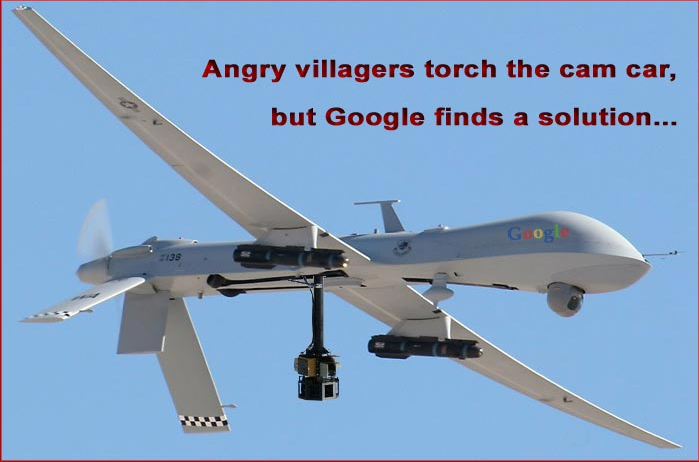
But check it out yourself, it’s worth risking a look! Another great tool is the Firefox Add-on „TrackMeNot“, which messes up user profiles by sending random search queries to the search engine.
* For an academic discussion on Google’s exploitation scheme within the broader context of capitalist society see, for example:
Fuchs, Christian (forthcoming) A Contribution to the Critique of the Political Economy of Google, Fast Capitalism, vol. 8, no. 1.
Mager, Astrid (2011) Algorithmic Ideology. How Society Shapes Search Engines, Conference paper for the OII conference “A Decade in Internet Time” (Oxford, 21-24 September).
Pasquinelli, Matteo (2009) Google’s PageRank. Diagram of the Cognitive Capitalism and Rentier of the Common Intellect, in Deep Search: The Politics of Search Engines beyond Google, eds. K. Becker & F. Stalder, Studienverlag, Innsbruck, pp. 152-162.
goodtosee #6: netpolitics in practice
I do really like when netpolitics turns into an actual practice, such as the one I’ve just recently learned about in my firefox browser. It’s called Make Your Mark and encourages people to leave a mark to show “support for a people’s web”.
The project is a collaboration between the non-profit organization Mozilla and Evan Roth, an artist and researcher investigating the intersection between free culture and popular culture. Further, the project is supported by the open net advocate Lawrence Lessig. By making your mark you are indicating that you also believe that (according to their website):
The Web is an integral part of modern life.
It is an educator, a communicator, an entertainer, an inspirer, a collaboration of all our creative efforts.
It sparks movements and enables us to share our ideas, our thoughts, our dreams.
The Web is our creation.
We are all contributors, the ones who use the Web every day.
And all the comments and uploads we make add up to something bigger.
This is why we believe that the Web must remain open and accessible to all.
Mark Up is a celebration of that freedom.
Each person’s mark is an individual expression on a continuous line symbolizing solidarity.
It is a declaration and a chance to show your support for a people’s Web.
So if you identify with that then leave a trace on the web, as I did (maybe an even more creative one 😉 ):
Another really great example of netpolitics in practice is the Firefox add-on: Track me Not. This application was created by Daniel C. Howe, Helen Nissenbaum and Janoss and helps you to protect yourself from surveillance and data-profiling by search engines. It does so by irritating search engines such as Google by creating noise and obfuscation.
Practically, this means that the app sends random search queries to search engines such as “Muddy River uses” – the one that’s displayed in my own browser right now. You see, it’s not only useful, it may also be highly entertaining given the stupid queries it sends 😉 More info and download here. Because using the web and getting exploited by big Internet companies must not necessarily be the same, even though it is often case unfortunately..
goodtosee #5: video archive of HUMlab lectures/ digital humanities 2002-?
Yesterday I gave a talk in HUMlab: “Search technology in society. Constructing search engines, shaping knowledge”. I was excited to present and discuss my research in this vibrant space and get feed-back from the wonderful HUMlab crowd! I really enjoyed the discussions that even continued after the talk – thanks for that!
Since the lab is not only a physical space, but also a highly digital space or “media place” – as the director Patrik Svensson himself often calls it – the HUMlab seminars are also live streamed and archived. I highly recommend to check out this rich repertoire of HUMlab lectures that goes back to the year of 2002 (!). The seminars are primarily dealing with research/ theories of the digital humanities, but also new media studies, digital sociology and related fields. This video archive assembles exciting scholars such as Whitney Trettien, Alan Liu, Rita Raley – just to name a few of the most recent speakers – and covers a wide variety of issues such as reading and writing in the digital age, cyberarcheology, digital modernism, online art production, file sharing communities and many more as you will find out here.. I’m really happy to be now part of this truly great video archive 🙂
suma awards 2011
Check out the SuMa Awards 2011 by the SuMa-eV. The SuMa-eV is a society with the central goal to assure free access to knowledge. In their doing they particularly focus on search engines, that have become central access points to the web and digital knowledge. Their central aim is to work towards a landscape of free, heterogeneous, and non-monopolistic search engines. More concretely, their goal is to raise awareness and information/ digital skills in the public and policy realm, but also to develop alternative technologies.
In addition to these activities they anually award works dealing with search engines or the future of digital knowledge in a more broader sense. That’s how they describe their call:
Our aim is to focus attention on search engines’ role in providing access to online information. The awards address all members of society: artists, scientists, journalists, parents, teachers – everyone who has something to say about the way search engines shape their information environment is welcome to send in contributions.
Our goal is to encourage public debate about the importance of our information environment for the future development of society. We want to spur innovative approaches to all aspects of search engines, not merely to the technical characteristics.
We welcome contributions in any format: text (scientific, journalistic, legal, literary, etc.), audio, video, multimedia, code, or any manner of artistic expression. They may take any style or mood, whether it be analytical, provocative, descriptive, or other. For inspiration, take a look at last year’s winners or at our project gallery. Anyone may take part – simply send your project description to: info@suma-ev.de.
The deadline is 30 June 2011. The prize is worth approx. 3000 EUR & the award ceremony will take place in Berlin, 28 September 2011. More infos on their website or my blogpost “my phd gets a suma award“.
Digital methods summer school, Amsterdam: 27 June – 8 July 2011
I just arranged my trip to Amsterdam to attend the 5th Digital Methods Summer School organized by Richard Rogers and colleagues. The questions that will be addressed this year are the following (according to the summer school website):
In the 2011 Digital Methods Summer School we will pay homage to cyberspace, in the opening, by presenting thought on a particular strand of media coverage about WikiLeaks, where cybergurus and cyberwar experts reappear on the scene. Just as importantly, we will ask, how to make use of the leaks, and their containers, for research purposes? From data-driven journalism to bespoke cablegate engines, does WikiLeaks spawn an online ecology of tools, visualizations and other substantive practices and outputs? Is such an ecology typical for data platforms? For comparative purposes, we will introduce and study the tool and visualization universes of Twitter as well as Wikipedia, both of which are examples of data-rich media. We would like to learn from platform media analytics and apply it to other data-rich media, so as to further develop tools for cultural diagnostics. One challenge is the question of device effects. For example, when comparing the Serbian, Croatian and Bosnian Wikipedia entries for the Srebrenica Massacre, does Wikipedia’s “neutral point of view” policies overdetermine the content, perhaps neutralize it, or can one read culturally distinctive views on the events?
Another strand of study is networked content, which is thought of as online content held together, maintained or even co-authored by software and bots. The interplay of search engines and content interests us this year, not just because Wikipedia articles are routinely at the top of Google results. (The relationship between Google and Wikipedia remains understudied.) But there is also content seemingly authored for engines first and readers only second, as in the case of “demand media.” We would like to study efforts that seek to fill in engine results with content, reopening the question of engine epistemology. Presentations will include work on engine log analysis. Apart from (Google) flu trends, are log analyses able to identify and geo-locate cultural and political preference?
More infos on the summer school and some sort of online tutorial on the methods and visualization tools used – such as the Issuecrawler identifying and visualizing link networks – may be found on the Digital Methods Initiative Website or on the Website of the Govcom.org Foundation.
I’m especially interested in the second cluster of questions since I’ll further pursue my research on search engines and their information political implications while being at the summer school. Concretely, I’ll investigate how the controversy around biofuels plays out in search engine results, a project I’m working on together with Jenny Eklöf from the Umeå Studies in Science, Technology and Environment. In this project we basically aim to analyze how search engines structure and stage the controversy, what actors succeed in occupying one of the “top ten seats” and what their positions on the issue are, and what conclusions may be drawn in terms of search engine politics and the commercialization of information. In addition, I’d like to compare search engine results with other web spheres such as Google news, blogs, and social networking sites and their way of ordering, filtering and hierarchizing information on biofuels making use of all the fancy “digital methods” and tools.
I’m already looking forward to the summer school and to work with Richard and his wonderful team again! Not to speak of lovely Amsterdam..

